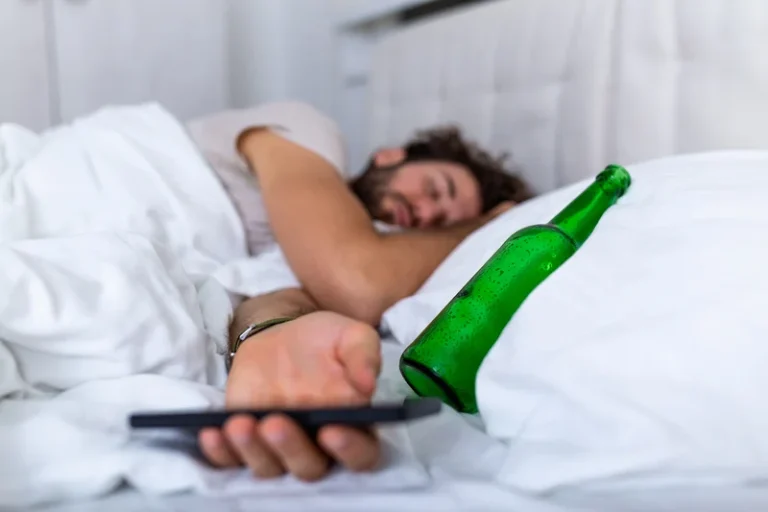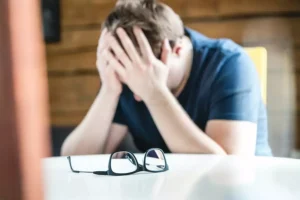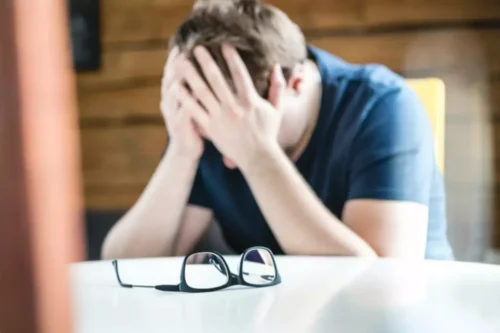Specific phobias Symptoms and causes

People who experience specific phobic disorders like autophobia are usually aware that the fear isn’t rational. Still, they’re unable to control their physical reactions when they find themselves in certain situations. See your doctor or a mental health professional if you fear and avoid normal social situations because they cause embarrassment, worry or panic. The anxiety is caused by fear that there’s no easy way to escape or get help if the anxiety gets overwhelming. You may avoid situations because of fears such as getting lost, falling, or having diarrhea and not being able to get to a bathroom. Most people who have agoraphobia develop it after having one or more panic attacks, causing them to worry about having another attack.
Follow us on social media
Fear of another panic attack can lead to avoiding similar situations or the place where it happened in an attempt to fear of being sober prevent future panic attacks. Agoraphobia often results in having a hard time feeling safe in any public place, especially where crowds gather and in locations that are not familiar. You may feel that you need a companion, such as a family member or friend, to go with you to public places. The fear can be so overwhelming that you may feel you can’t leave your home. People with phobophobia tend to avoid any situation where they think they might become fearful. This might mean avoiding normal “scary situations” such as horror movies, roller coasters or skydiving.
Agoraphobia

Whether it’s improved health, better relationships, or greater productivity, focusing on these benefits can motivate you to maintain your sober lifestyle. With the right combination of treatments, you’ll better learn to manage and understand your reactions, feelings, and thoughts. “Being alone” has a different meaning for different people.
What Are Phobias, and How Are They Treated?
They’ll do this first in a controlled setting where you feel safe and eventually will move to a real-life situation. If they’re open to it, ask your loved one if you can call their doctor or therapist to set up an appointment. Offer to go with them to their visit if they’re afraid or unable to leave their home alone. Research the physical and emotional symptoms and behaviors linked to agoraphobia. This can help you recognize and understand when your loved one is in a situation that causes panic or anxiety. If you’re working with a therapist, tell them exactly what agoraphobia keeps you from doing.

Biology — including health conditions and genetics — personality, stress and learning experiences may all play a role in the development of agoraphobia. Call your health care provider or a mental health professional if you have symptoms of agoraphobia or panic attacks. Agoraphobia treatment can be challenging because it means confronting your fears.
- Tell your doctor if your symptoms are so serious that you can’t leave your house.
- A panic attack is a sudden feeling of extreme fear that reaches a peak within a few minutes and triggers a variety of intense physical symptoms.
- A therapist specializing in addiction recovery can offer personalized advice and coping strategies.
- Comfort levels in social situations vary, depending on personality traits and life experiences.
What questions should I ask my doctor?
CBT can give you a sense of confidence when confronting your autophobia. This will help you feel much less overwhelmed the next time you have to confront it. It’s increasingly common for someone to be diagnosed with a condition such as ADHD or autism as an adult.
- It’s important to view these events not as failures but as opportunities for learning and growth.
- Accept that your loved one doesn’t have control over their fears.
- Phobias are widespread and can affect everyone, regardless of age or background.
- Get the help you need from a therapist near you–a FREE service from Psychology Today.
- Once you recognize and accept that you’re afraid, you can begin to address the underlying causes with specific strategies.
Being alone can result in severe anxiety for people with this condition. Autophobia can be managed with a combination of treatments, including CBT, exposure therapy, and medications. It triggers intense fear of being in situations outside your home where you might not be able to leave easily or get help, particularly if you have a panic attack. Exposure therapy successfully helps most people overcome specific phobic disorders. Your healthcare provider may also use cognitive behavioral therapy (CBT).
How is autophobia diagnosed?
When you have autophobia, you feel anxious or scared when you’re alone or when you think about being alone. You feel this way regardless of how many loved ones and friends are in your life. Some people may have autophobia even when they’re with other people. In this case, the fear centers on worries about isolation. Or they may worry about people leaving them, or having to go home and be alone.
- Someone with a phobia understands that their fear is not logical.
- In addition, they often experience low self-esteem and depression.
- There’s not much evidence on how well they work for agoraphobia, but antihistamines are considered a safer alternative to benzodiazepines because they’re less addictive..
- They often worry for days or weeks in advance of a dreaded situation.
- How well phobia treatment will work depends partly on the severity of the phobia.

With agoraphobia, you move gradually into the places and situations that trigger anxiety. By taking small steps each day — in the company of a trusted person — you eventually learn to cope with situations that once caused intense fear. Your therapist will also encourage you to be less critical of yourself. One of the main ways to treat a phobia is by helping you adjust your thinking and behaviors surrounding your fear. Mental health therapy (psychotherapy) is one of the most useful ways to do this.





Останні коментарі